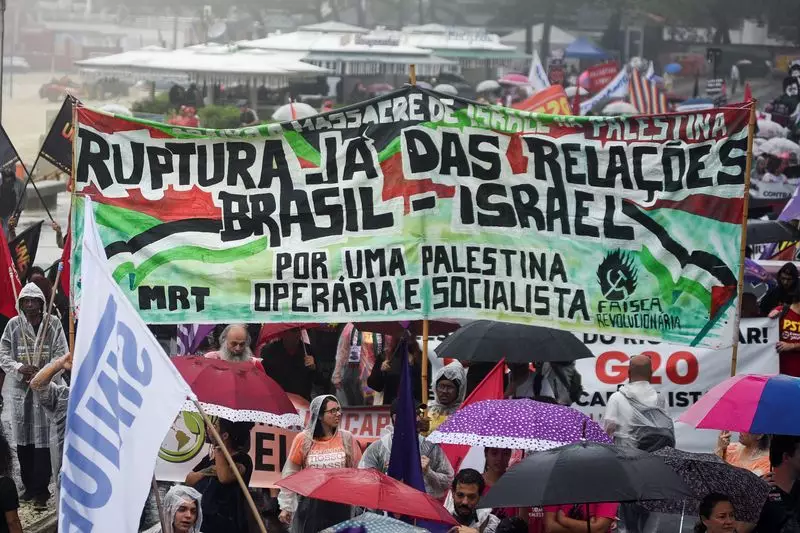As the G20 summit approaches in Rio de Janeiro, the atmosphere is charged with unease as diplomats grapple with persistent disagreements over critical international issues. The discussions revolve around the pressing need for climate change financing, the taxation of wealthy individuals, and the ongoing conflicts in Ukraine and Gaza. This year’s summit is anticipated to establish essential parameters for future negotiations, particularly as it coincides with the second week of the United Nations COP29 climate talks. The stakes are high as the world watches to see if tangible progress can be made amid such profound differences.
One of the central themes of negotiations is the financial commitment necessary to combat climate change. Developed nations are advocating for contributions from wealthier developing countries, a notion that has sparked intense debate. Developing countries argue that it is primarily the responsibility of the wealthiest nations to bear the financial burden associated with climate initiatives. This ongoing tension not only hinders the formation of a cohesive strategy but also raises questions about the equity of climate financing responsibilities. Recent discussions have indicated that securing a robust message from G20 leaders could catalyze progress at COP29; however, the path forward remains fraught with obstacles.
Geopolitical Divides and War Implications
Simultaneously, the G20 is grappling with the implications of Russia’s invasion of Ukraine and the humanitarian crisis in Gaza. These conflicts have created fissures within the group, complicating diplomatic efforts. In an effort to sidestep polarizing discussions, G20 sherpas have proposed limiting communications to broad principles of peace instead of delving into specifics. This strategy signifies a recognition of the deep divisions that geopolitical conflicts have wrought, yet it also risks marginalizing critical humanitarian issues that require direct attention.
Taxation of the Wealthy: A Controversial Proposal
Another contentious issue is the proposal to implement taxes on the super-rich, a priority for Brazil’s President Luiz Inacio Lula da Silva, who is hosting the summit. However, this proposal has met with formidable resistance, particularly from Argentina, which recently reversed its support following President Javier Milei’s meeting with U.S. President-elect Donald Trump. This turnaround underscores the intricate interplay of national politics in shaping international discussions, revealing how individual countries’ internal agendas can significantly impact broader agreements.
Looking ahead to the G20 summit, one must wonder if the world’s largest economies can navigate these complexities to arrive at meaningful resolutions. The failure to address pressing global issues like climate change, equitable tax structures, and geopolitical stability could have long-lasting ramifications not just for the nations involved but for the global community at large. As diplomats continue their negotiations, the hope is that through careful and strategic dialogue, consensus can begin to emerge, setting a constructive tone for future engagements. The G20’s ability to rise above its divisions will be critical in shaping a collaborative response to the challenges facing our world today.

